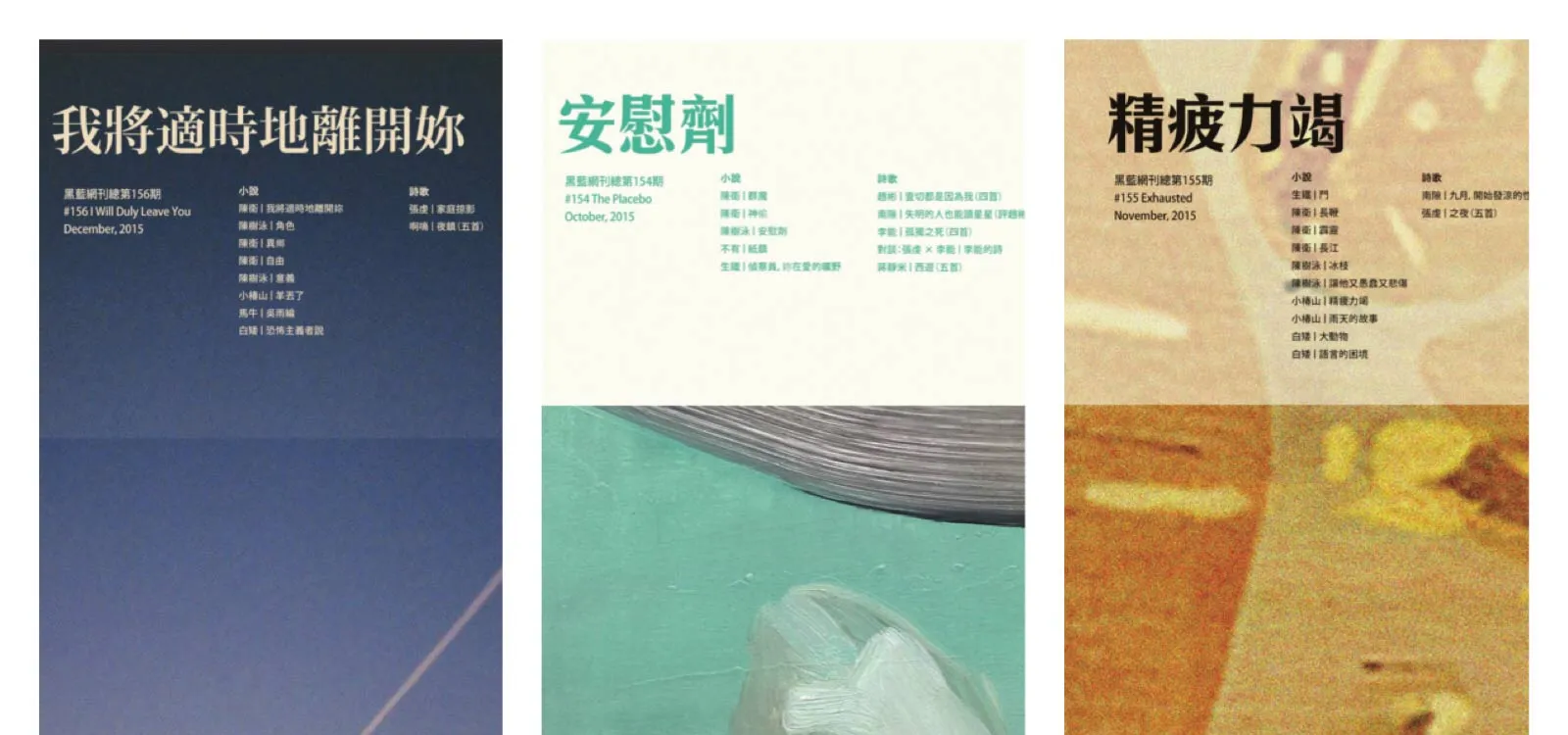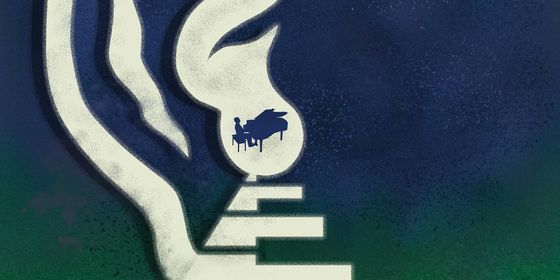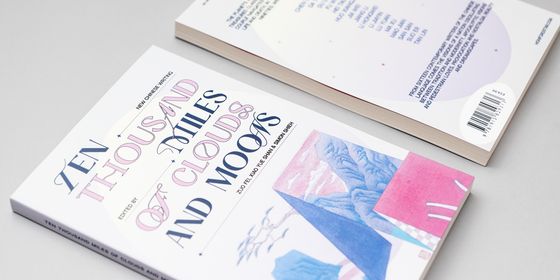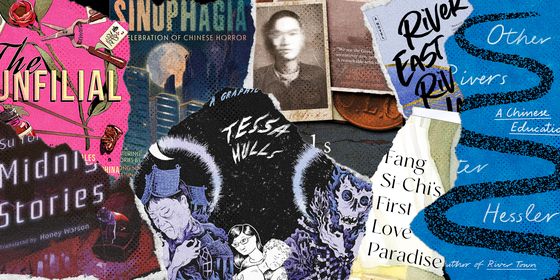Literature’s 1980s golden age lives on in “Heilan”
The 1980s was a “golden age” for artistic youth in China. The early years of reform and opening up saw many poets, writers, artists, musicians, and filmmakers thrive. Arts and literature were prominent in the lives of a whole new generation—the “good old days” before modern-day pressures, such as making money and babies, took hold.
Heilan Literature was founded shortly after this renaissance, in 1991, by then 19-year-old writer Chen Wei (陈卫) and his college classmate Shen Liming (沈黎明), who now works as a teacher. Chen’s favorite color was black, while Shen preferred blue; thus “Heilan,” or “Black and Blue.”
In 1996, Heilan started to publish print magazines featuring the experimental, avant-garde writing of Chen and other like-minded writers influenced by the French New Novel movement that had flourished in the mid-1950s and 60s. Circulated mostly by mail, Heilan’s words built them a reputation as an emerging literary group distinct from the mainstream. Heilan magazine also claims to have been the first to use the term “post-70s” to advocate its fresh style of writing, which later spun off into the “post-80s” and “-90s” monikers that have been assigned to every generation of Chinese youths since. However, their underground publication only existed for five months before it was shut down, ostensibly for lacking a publishing license.
But Heilan found a new voice in the internet age: Chen and his colleagues founded a website in 2001, then an online forum in 2002, and began publishing digital magazines in 2003. Heilan has now won the recognition of the literary community and, over the years, been published extensively by official publishers: To date, there have been 15 volumes of the “Heilan Series,” anthologies of short stories by various group members. Independently, the group has published over 60 e-books and a dozen pamphlets. TWOC spoke with core member Chen Shuyong (陈树泳), also the chief editor of Heilan’s digital magazine, about their literary world.
What was it like when Heilan first started?
In 1996, minkan (“civilian periodicals,” as opposite to officially published periodicals) was an underground scene, but was very popular among readers. Heilan was a sensation. Each magazine was a beautifully designed small collection, containing the work of a poet and two fiction writers. Heilan’s style was rare back then; not many people really understood it. Nevertheless, they received it with enthusiasm. There were, of course, authorities who monitored Heilan. They saw its popularity but did not really understand its content, therefore became suspicious of Heilan conducting some kind of “counterrevolutionary” activity. It got quite serious, and Chen Wei was called in and questioned for eight hours. Police also called Chen’s professors at school to investigate his background. For a young man in his 20s, it was a scary experience.
Was anyone scared off?
It was indeed a setback, but writing is something that we all want to pursue no matter what. Heilan is avant-garde, but there’s no political innuendo to it. Its aim is not to run against the authorities—it’s mainstream literary taste that Heilan has a problem with. Back then, Heilan writers produced a lot of work but would not bother to seek open publication—there was no suitable official outlet for them, not in the established literary magazines. Heilan’s style represented the writing style of a fresh group of writers and the new taste of readers. So, we had to build a platform for this kind of writing.
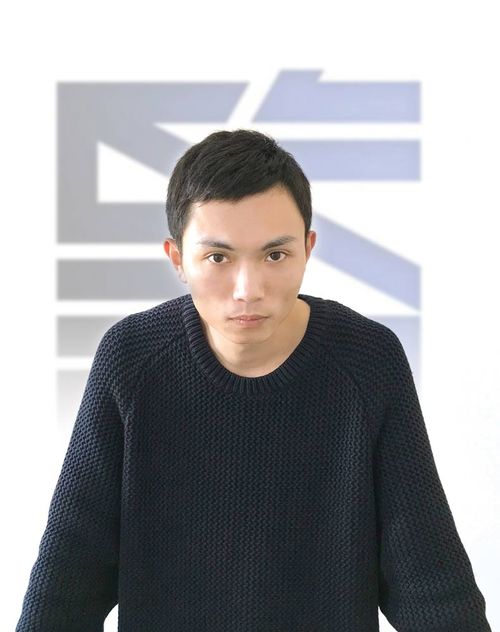
Chen Shuyong’s short story “One Note” was featured in 2017 Issue 5 of The World of Chinese (Heilan)
Could you elaborate on the Chinese mainstream literature you are referring to?
Mainstream literature in the early 1990s was dominated by xiangtu (乡土, “home soil,” nativist) literature, as well as continuing the “scar literature” tradition after the Cultural Revolution; all have too close a tie with reality. There’s also the tradition of “literature for moral instruction” (文以载道, proposed by 11th century neo-Confucian philosopher, Zhou Dunyi). According to these traditions, any literary work has to be closely based in reality in order for it to be taken seriously.
What makes Heilan different from the mainstream?
Diversity is certainly one aspect. We are also against formulas and modes. With mainstream literature, after reading the beginning, you may easily form an idea of what’s to come and how it will end, but our writing refuses to meet the expectation of readers. We also believe there’s more to literature than just showing concern for the bottom of the society, struggle against authorities, or defying traditional morals. We value the “uselessness” aspect of literature, like beautiful music that’s pleasing to the ear. There’s a line about fiction we put on our website: “Fiction is not to narrate an adventure, rather, it’s an adventure of narration.” The same story can be told very differently by different writers, and we pursue the art of storytelling.
Who are the members of Heilan?
Currently, our core members are writers Chen Wei, me, and Sheng Tie (生铁), and poet Zhang Qian (张虔). Heilan is like an iron barracks where soldiers flow in and out. Many people go through a phase of “artistic youth,” but less often do they commit and make writing their lifelong career. Writing can seem easy—all you need is a laptop and some free time to type, but if you are living with a certain mentality or under stress, it’s very hard to create. There are certainly exceptional individuals who can manage a day job and write, but for most, writing requires delicate condition that has to be protected.
How did you first start?
I have always been interested in fiction and certainly have the impulse to create. But I knew very little about writing, either conceptually or in detail. After I posted my first story on the Heilan forum in 2007, I received much positive feedback, and I started to communicate with other members on the forum. Here we discuss specific questions daily: “Is there a better word for this line?” or “Though this sentence may not be grammatically correct, it casts a better effect”…these exchanges benefit one’s writing greatly. Many remarked that the Heilan forum is like a writing academy. I was assigned as the webmaster of the fiction section, and later editor-in-chief of the digital magazine.
Who are your fans?
From the backend of our WeChat account, we found that 60 percent of our followers are female. There are also lots of college students, even high and junior high school students. We are quite surprised that these younger readers are able to enjoy our work, even understand them better than older readers. I think this might be because they grew up in a more culturally diverse environment. They would not refer to our work as “odd” because of the occasional lack of resolution, or moral implication, but they seem to be able to identify with the story and enjoy it.
What do you wish your readers to gain from Heilan’s writing?
I am a writer, but also a reader. I wish them the same joy I gained from reading. I enjoy the beauty of language. When appreciating the poetry of Sappho, or the Homeric Hymns, the language itself is a source of great pleasure. The pure aesthetics with no practical value attached is a great function to literature. Reading can also increase the sensitivity of readers to certain details and, in turn, the world. However small it is, a detail put down by a writer may intrigue readers and arouse their emotional response. I also wish them to gain spiritual power from reading. By this I don’t mean “chicken soup for the soul,” or in a self-help sense. Rather, it’s independence of one’s personality, inspiration, and the strength to face life.

(Heilan)
Does social change affect your readership?
Compared to the 1980s, when there was a certain classical sense attached to [the idea of] reading books, in our day and age, the charm of literature seems weak under the attack of pop music, blockbusters and reality TV. Though life’s beautiful in appearance, everyone is struggling underneath, with their energy consumed in all kinds of entertainment and living stress. But we are not pessimistic. Heilan exists because this is the kind of writing we want to read. And we still believe it’s in our human instinct to appreciate the beauty of literature. Furthermore, a culturally diverse society is essentially making our style of writing more welcome. There are also more media channels to share our ideas with more readers.
What are you currently working on?
(Founder) Chen Wei is on a writing retreat and road trip. He finds inspiration in strange environments. Sheng Tie and Zhang Qian have day jobs and write on the side. I am tackling a novel full-time right now and hope to finish it this year.
Black, Blue, and Well Read is a story from our issue, “Cloud Country.” To read the entire issue, become a subscriber and receive the full magazine.





